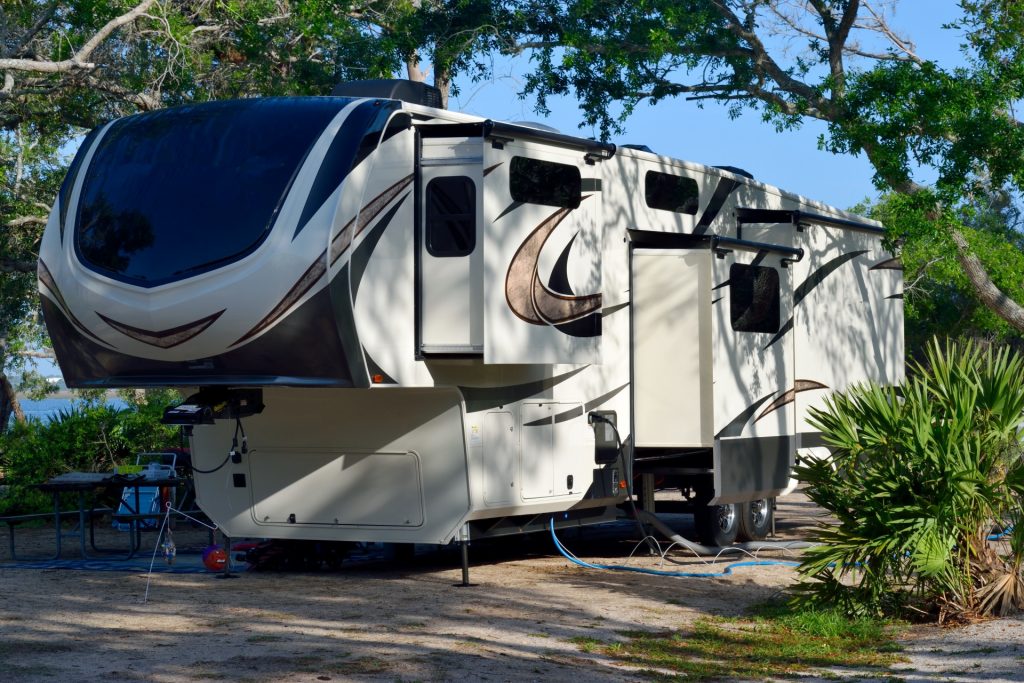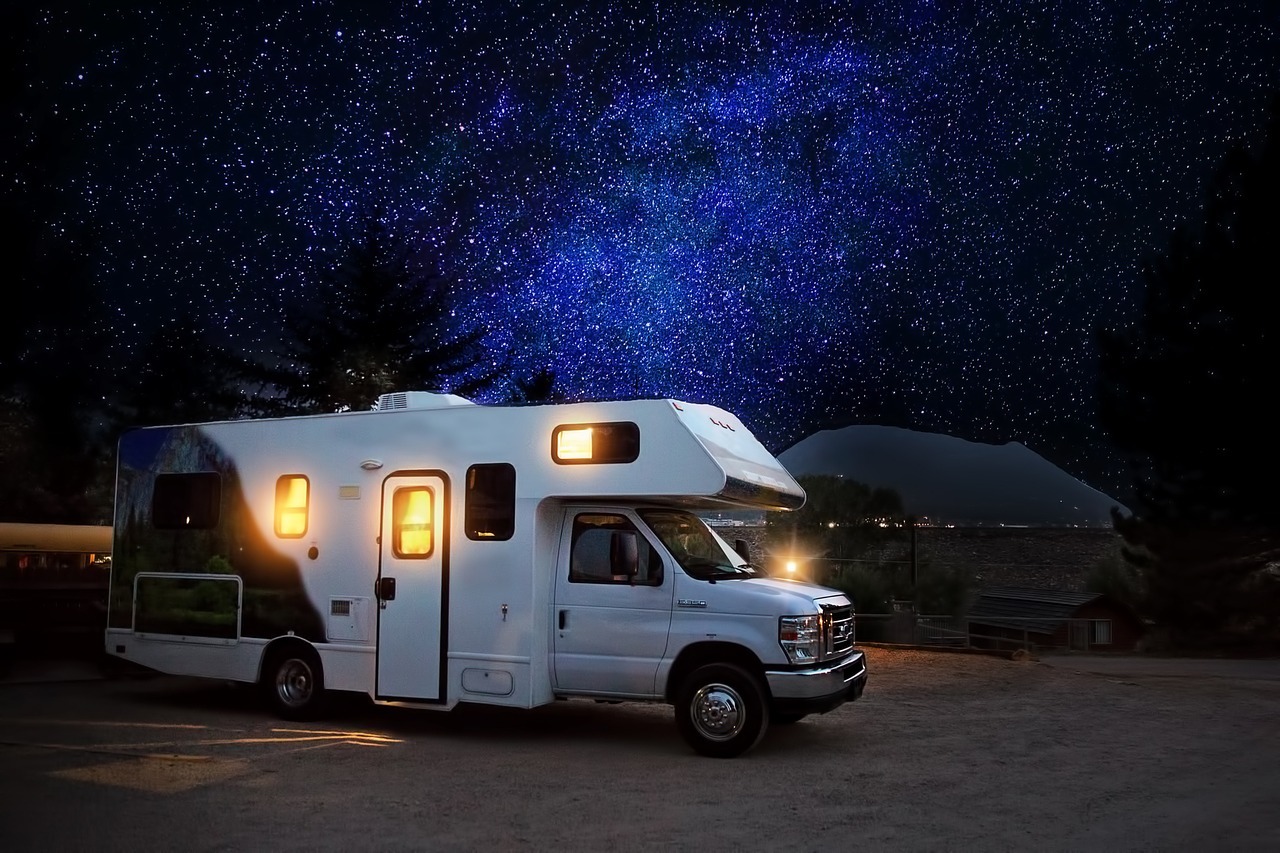Summary
Why maintain your RV?
Maintenance of the RV: the carrier
Maintenance of the RV: the cell
RV maintenance costs
Choosing an RV professional
Taking care of your RV
The maintenance of a vehicle is the guarantee of its longevity, reliability, comfort and safety. The manufacturer recommends its frequency in the maintenance booklet. It also concerns cars, whether they are equipped with diesel, petrol, LPG, electric or hybrid engine, RVs, motorcycles, scooters, etc. Due to its occasional use, the maintenance of an RV is even more necessary.
Why maintain your RV?
The RV uses the same road network as other vehicles and is subject to the same maintenance rules prescribed by the Highway Code and technical inspection. Every RV is composed of:
a carrier, which requires to be mechanically maintained like any other vehicle, even if it does not drive much, and by respecting the manufacturer’s recommendations;
a cell, which requires specific, but equally regular, maintenance to preserve the comfort of use and avoid surprises that could spoil your vacations.
Maintenance of the RV: the carrier
The carrier is the vehicle on which the RV was built. This is called the “chassis cab,” which includes:
-
- a chassis;
-
- the wheels;
-
- the engine;
-
- the cabin (except for the A-Class, where the cabin is integrated in the cell).
Frequency of maintenance
As with any vehicle that is used infrequently, it is preferable:
-
- to run it regularly, even over short distances;
-
- to carry out all the revisions prescribed by the manufacturer.
Engine
Engine maintenance will depend on the energy used:
-
- The gasoline engine maintenance, i.e. oil change, coolant, timing belt, exhaust, will be different from a diesel engine.
-
- Oil changes are more often performed on a diesel RV.
-
- An electric RV does not require an oil change since there is no fuel.
-
- Miles travelled or the number of years of use.
-
- Your driving skills.
Electricity
The maintenance of the battery, alternator, spark plugs or bulbs also depends on the engine used, since:
On a diesel engine, you will find glow plugs instead of spark plugs.
The maintenance of electric motors is mainly based on the batteries’ maintenance, which is more or less durable.
Safety
The maintenance of brakes, shocks or clutches depends on many elements, including the weight, which is quite substantial for an RV. Consult the maintenance booklet issued by the manufacturer.
Maintenance of the RV: the air-frame
Waterproofing
An RV must, of course, remain waterproof; it is essential for your comfort and safety. This revision, recommended by the manufacturers, is generally done every year. The materials of the walls of the RV have some variations, but they are still composite sandwich panels:
-
- rigid foam (interior insulation);
-
- of facings of different materials (aluminium or polyester).
In all cases, the verification of these panels is necessary to prevent water infiltration and maintain the structure’s solidity and thermal performance.
Water circuit
An RV has three tanks:
-
- the clear water tank (which is not drinkable), which requires cleaning at least once a year;
-
- the grey water tank, which collects the water for washing dishes and showers;
-
- the black water tank, which collects the flow from the toilets.
The clear water tank must be drained, even after short interruptions in use (one or two days), or before winter to avoid freezing.
Grey and black water tanks should be drained throughout their use (if you don’t want to risk overflows) and after each use of the vehicle. This will prevent unpleasant odours due to their stagnation or the destruction of the seals and the tank in case of freezing.
Caution: Grey and black water must be emptied in places provided for these operations. These are service areas, campgrounds or special pitches installed in the communes.
Heating system
The majority of RVs have a heating system that runs on gas (propane or butane); the heat is spread through flexible hoses to heating vents.
Its maintenance prevents the heating system from becoming clogged by air movement. Besides, if the RV is parked outside, some insects and spiders can get into it. The maintenance of a gas heating system consists of dust removal:
-
- the fan blades: to do this, disconnect and remove the fan block;
-
- the heating element: the air reaches it to be heated;
-
- the external air intake: which must not become blocked.
Toilets
The toilets also require regular maintenance:
-
- If you use them frequently, monthly cleaning is sufficient.
-
- Don’t hesitate to clean the waste-holding tank valve seal, the automatic gas vent seal and the cap seal.
-
- A simple descaling may be sufficient every year.
Skylights

Skylights are the roof windows of your RV. Their maintenance should not be forgotten, as they are essential for your comfort. They receive everything that the wind carries and what falls from the trees when they are parked. Regular cleaning will prevent them from becoming blocked and unable to close because of leaves, dirt and other debris trapped in the joints.
RV Air Conditioner
The operation of an RV air-conditioning system is identical to that of a motor vehicle. For this reason, maintenance and operating instructions are the same. Thus, the maintenance of an RV air conditioning must be carried out by a professional for two important reasons:
The technical aspect: it is necessary to know how to replace the circuit’s various components if required.
The environmental aspect: it is also necessary to know how to handle and treat the refrigerant. Changing and evacuating it requires special skills and an air conditioning charging station.
On the other hand, the use of an RV air conditioner is quite intensive for two main reasons:
-
- depending on the countries and seasons you are passing through; its operation can be persistent;
-
- you stay much longer in your RV than in your car since you sleep in it.
Consequently, a frequent overhaul of the RV’s air-conditioning system is necessary, including checking the refrigerant level.
RV maintenance costs
Like any vehicle, your revisions and maintenance (carrier and cell) depend first on the carrier type.
The brand, the cubic capacity, will influence the price as much as the kilometres travelled.
The maintenance of the cell will depend on the materials used and the equipment chosen.
From the more or less luxurious, the parts’ prices will vary according to their technicality.
Choosing an RV professional
The road traffic regulation allows motorists to have their vehicles serviced under warranty outside their manufacturer’s network. However, the operations must follow the manufacturer’s recommendations.
Caring for your RV yourself
Mechanics cannot be invented. Of course, the maintenance of the RV by yourself can be a source of savings. However, do not forget that the revisions contained in the manufacturer’s warranty may be free of charge if the problem is due to manufacturing, material or assembly defect (excluding normal wear and tear, improper use, external cause, etc.).
The principle of “self-maintenance” has a few limitations, which reside in:
-
- the complex or electronic tools that one must possess and know how to master;
-
- the time to devote to it;
-
- the available installation;
-
- the necessary knowledge of mechanics.
Besides, be aware that:
Some operations such as replacing the timing belt, brakes or clutch are tedious or even dangerous.
As for recharging the fluid in the RV air conditioner, it is forbidden for the individual to do so.
Warning: Any fault in the repair or replacement of a spare part will void your warranty.
However…
If you’re good at DIY, you’ll have plenty to do with the layout of your RV’s cell: its optimisation could cost you long hours…


3 comments
[…] – Factors to Consider for the Maintenance of an RV; […]
[…] – Factors to Consider for the Maintenance of an RV; […]
[…] – Factors to Consider for the Maintenance of an RV; […]